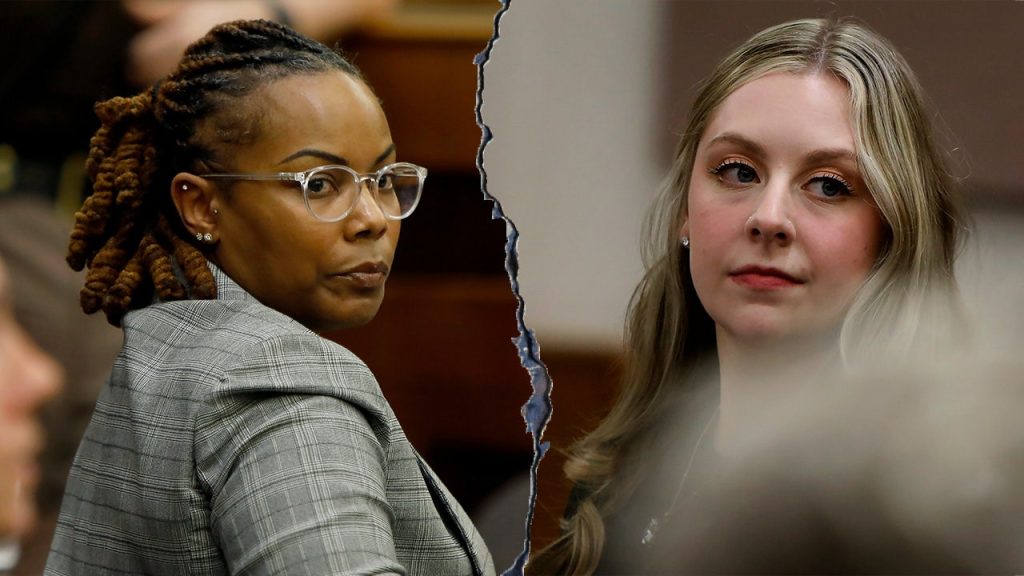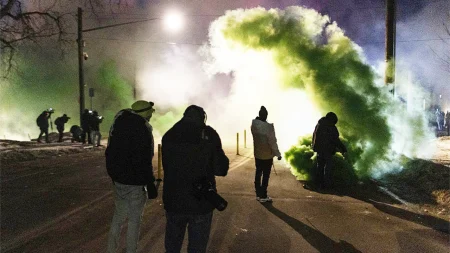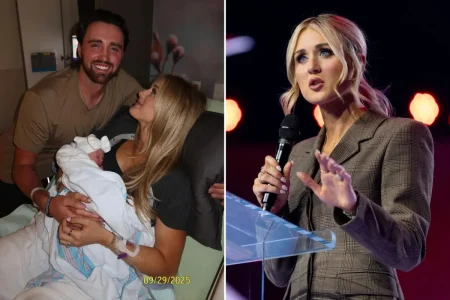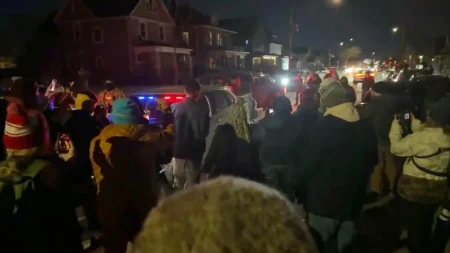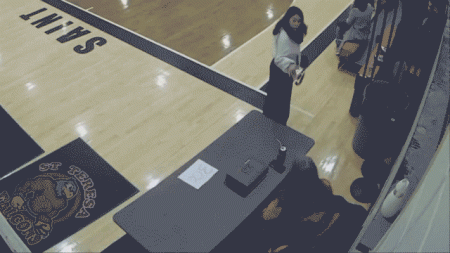Teacher Shot by 6-Year-Old Student Awaits Jury Decision in $40 Million Lawsuit
The civil case between Abigail Zwerner, a former teacher at Richneck Elementary School, and Ebony Parker, the school’s former assistant principal, has reached a critical juncture as closing arguments concluded Wednesday. The jury is now deliberating in this landmark $40 million lawsuit stemming from a shocking incident where Zwerner was shot by her 6-year-old student on January 6, 2023. The bullet narrowly missed her heart and remains lodged in her chest, causing injuries to both her chest and hand. At the core of this case is Zwerner’s claim that Parker repeatedly ignored warnings from school staff about the child potentially having a gun on school premises—warnings that, had they been heeded, might have prevented the life-altering shooting.
During emotional closing arguments, Zwerner’s attorney Kevin Biniazan emphasized the gravity of the situation, stating plainly: “A gun changes everything. You stop and you investigate.” The legal team portrayed Parker as negligent in her duty to protect both students and staff, having allegedly dismissed multiple faculty reports about concerning behavior from the child in question. The lawsuit contends that this negligence directly led to the traumatic shooting that has fundamentally changed Zwerner’s life. The former teacher, who was just 25 years old at the time of the incident, testified about the profound impact of that day, recalling how she thought she was dying or dead in the moments after being shot: “I thought I was either on my way to heaven or in heaven… Then it all went black.”
Parker’s defense attorney, Sandra Douglas, offered a contrasting perspective, arguing that her client made decisions based on “real-time judgment, not hindsight judgments.” She urged the jury to consider only what Parker knew in those critical moments leading up to the shooting, rather than evaluating her actions with the benefit of hindsight. Douglas also challenged aspects of Zwerner’s testimony, particularly questioning claims that the teacher had become a “recluse” after the shooting. While acknowledging the severity of what happened, Douglas reminded the jury that with $40 million at stake, it was her duty to present “another side to that story,” suggesting that perhaps the damages sought were disproportionate to the harm suffered.
The emotional weight of this case was evident as Zwerner’s attorney countered these arguments, explaining that the shooting has dramatically shortened his client’s life expectancy—now estimated at just 53 years—and forever altered her mental state. Biniazan posed poignant questions to the jury about Zwerner’s future: “We don’t get to come back here in five, 10, 15 years and bring you all together and ask Ms. Zwerner, ‘How are you doing? Are you still waking up at nine? Do you still see that face?'” This powerful rebuttal underscored that the jury’s decision would impact not just Zwerner’s immediate future but potentially decades of her life as she continues to cope with the physical and psychological aftermath of the shooting.
Beyond this civil case, the incident has triggered broader legal consequences. Parker faces additional legal jeopardy in the form of a criminal trial, where she has been charged with eight felony counts of child neglect—one for each bullet that endangered students in Zwerner’s classroom. Meanwhile, the young shooter’s mother, Deja Taylor, has already pleaded guilty to child neglect and gun charges and is currently serving a two-year prison sentence. These parallel legal proceedings highlight the multiple layers of accountability being pursued following this unprecedented school violence incident involving such a young child.
As the seven-person jury deliberates, this case has captured national attention not only for its shocking circumstances—a teacher shot by a first-grader—but also for the significant questions it raises about school safety, administrative responsibility, and appropriate compensation for educators injured in the line of duty. Whether the jury awards Zwerner the full $40 million she seeks or a different amount, their verdict will likely establish an important precedent for how similar cases might be handled in the future. For Zwerner herself, no monetary award can fully restore what was lost that day, but the outcome may provide some measure of justice and support as she continues to recover from an incident that forever changed her life and career.





